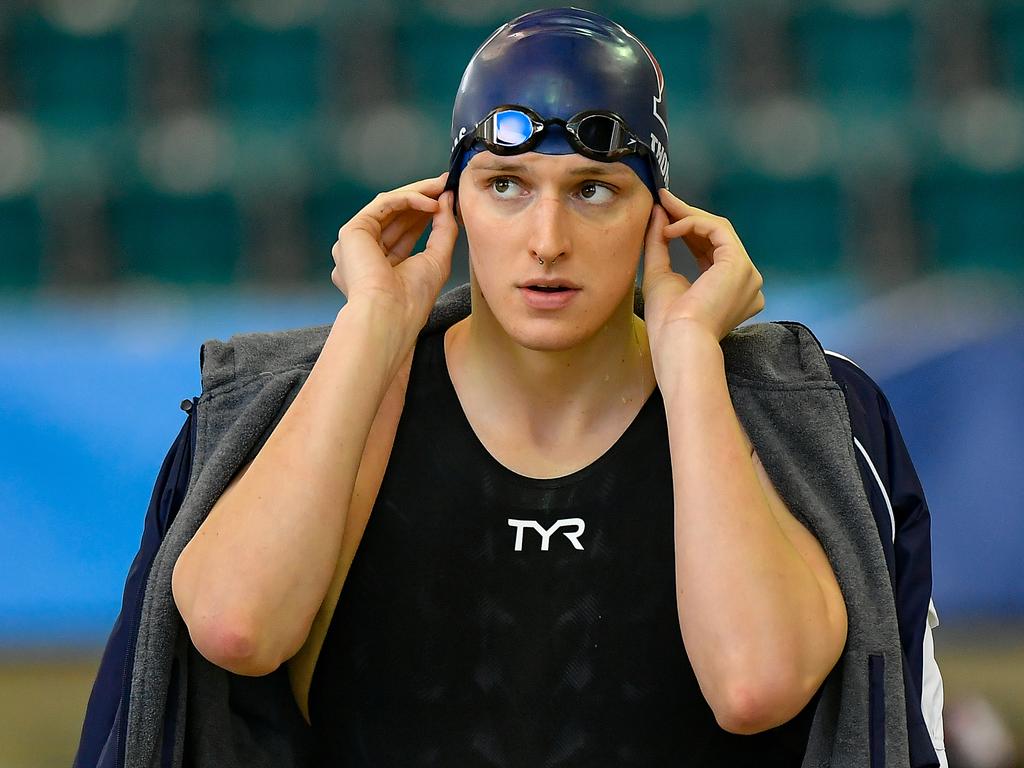Swimming’s international governing body, FINA, voted to enact a new policy delineating which transgender athletes can compete in the highest levels of aquatics competitions.
FINA approved the new “gender inclusion” policy on Sunday after 71.5% of the global governing body’s member federations voted in support at the FINA Extraordinary General Congress 2022.
Under the new policy, which went into effect on Monday, female transgender athletes will only be eligible to compete in the women’s categories in FINA competitions if they transitioned before the age of 12 or before they reached Stage 2 on the Tanner Scale of puberty.
The Tanner stages enumerate “the external changes that occur in the time period between the onset of puberty (Stage 2) and the achievement of full maturity for both girls and boys (Stage 5),” according to an article published in the Encyclopedia of Body Image and Human Appearance.
The World Professional Association for Transgender Health’s recommended minimum age for starting transgender hormone usage is 14, with its minimum age recommendation for surgeries being 15 or 17.
Additionally, as part of the new policy, male transgender athletes who previously used testosterone as part of their transition will only be eligible to compete in women’s competitions if they used testosterone for less than a year. They will also be allowed to compete in women’s competitions if their testosterone use did not occur during puberty or if their testosterone levels have returned to pre-transition levels.
The “gender inclusion” policy was crafted by a working group that FINA says included transgender athletes and coaches, a science and medicine group, and a legal and human rights group.
FINA said it would establish another working group to develop an open category for athletes that do not meet its eligibility criteria for the men’s or women’s categories.
“We have to protect the rights of our athletes to compete, but we also have to protect competitive fairness at our events, especially the women’s category at FINA competitions,” FINA President Husain Al-Musallam said. “FINA will always welcome every athlete. The creation of an open category will mean that everybody has the opportunity to compete at an elite level. This has not been done before, so FINA will need to lead the way. I want all athletes to feel included in being able to develop ideas during this process.”
FINA oversees aquatic competitions in swimming, water polo, diving, artistic swimming, open water swimming, and high diving.
On Monday, the International Olympic Committee (IOC) issued a statement confirming that FINA’s new policy would extend to the Olympic games, saying that “sports at the Olympic Games are governed by the International Federations (IFs).”
“The IOC considers that sports bodies are well placed to define the factors that contribute to performance advantage in the context of their own sport,” the IOC said. “They are also well placed to determine the threshold at which an advantage may become disproportionate, devise relevant criteria, and develop the mechanisms needed to offset disproportionate advantage when it is determined to be present.”
Athlete Ally, a group that advocates for LGBT rights in sports, described the new rules as “discriminatory, harmful, unscientific.”
“If we truly want to protect women’s sports, we must include all women,” the group said on Twitter.
Nancy Hogshead-Makar, who won three gold medals in swimming at the 1984 Olympics, praised the new policy on Twitter, saying it is an example of “science-led decisions” and “a call to other women athletes” in sports besides swimming to speak out.
The debate over transgender women in swimming was spotlighted after Lia Thomas from the University of Pennsylvania (Penn) became the first openly transgender woman to win an NCAA Division I women’s swimming title earlier this year.
This February, 16 Penn swim team members sent a letter to the university and the Ivy League asking them not to challenge policies that would prevent Thomas and other transgender athletes from competing.
They argued Thomas had an “unfair advantage” while clarifying that they supported her gender transition out of the pool but not in it.
Despite the backlash, Penn Athletics and the Ivy League defended the transgender swimmer. Over 300 current and former swimmers signed their names to an open letter to support Thomas’s ability to compete.







Yes , perfect ruling, I support.
A great example of a well-researched, well-written new piece. Both sides clearly presented and no idea of any bias the writer might have. Bravo.
Sorry. “news”, not new.